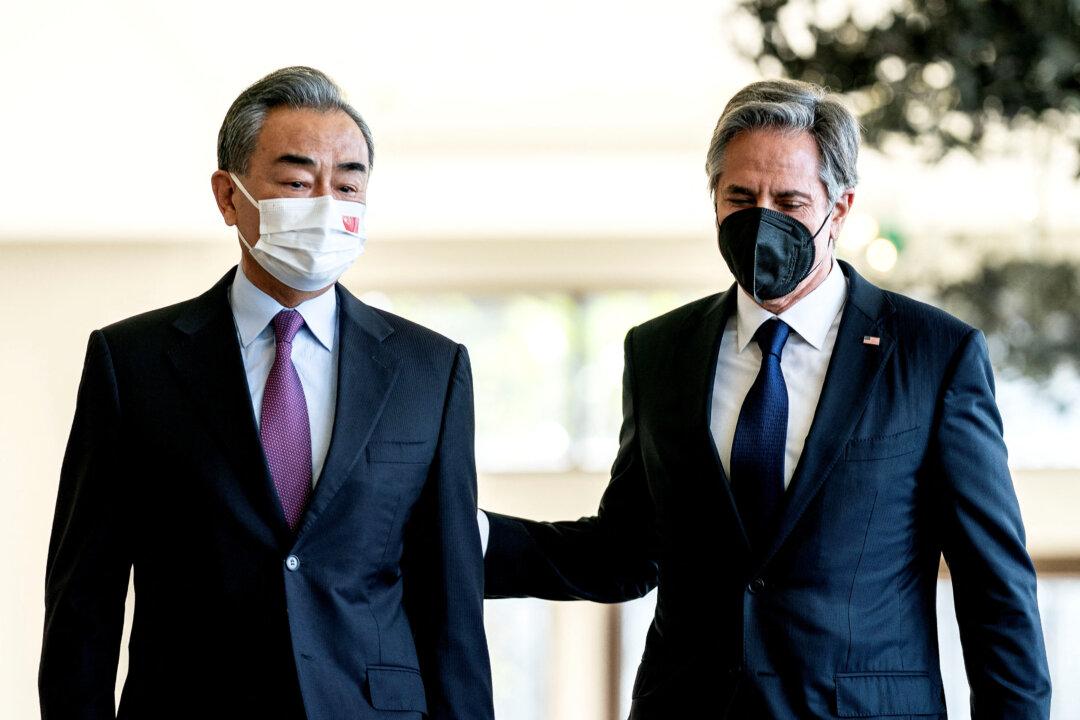NUSA DUA, Indonesia—U.S. Secretary of State Antony Blinken said on Saturday he had discussed Russian aggression in Ukraine during more than five hours of talks with Chinese Foreign Minister Wang Yi in which he raised concerns over Beijing’s alignment with Moscow.
The diplomats both described their first in-person discussions since October as “candid,” with the meeting taking place a day after they attended a gathering of Group of Twenty (G-20) foreign ministers on the Indonesian island of Bali.





